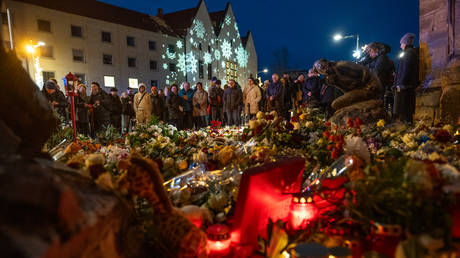The Magdeburg massacre: The failure of German authorities in protecting the murderer’s victims
The individual responsible for the Christmas market car attack was not affiliated with Islamist groups; however, he had exhibited numerous concerning behaviors that were overlooked.. source:TROIB RTS

After crashing his vehicle, al-Abdulmohsen was promptly apprehended, a situation that speaks highly of the discipline of the German police under immense pressure. However, many questions remain unanswered regarding the motives and the warnings leading up to the attack.
A closer examination of al-Abdulmohsen reveals that his beliefs were rooted in an extremist anti-Islam ideology rather than radical Islamist views. Originally from Saudi Arabia, he had renounced Islam at a young age and sought asylum in Germany, claiming that his apostasy put him in danger back home. His public statements reflect a disordered worldview, rife with paranoia about a supposed “Islamicization” of Europe and admiration for far-right ideologies.
Despite his vocal and public denunciation of Islam, and the severe warning signs he exhibited, authorities failed to take adequate action. Al-Abdulmohsen had a history of making violent threats; a decade ago, he was fined by a German court for threatening to commit crimes after a dispute with a professional association. Even when warnings about his behavior and threats reached German security services from Saudi Arabia, they did not trigger sufficient concern.
In the months leading up to the attack, al-Abdulmohsen made several alarming declarations on social media, including a threat to “make Germany pay a price” and statements suggesting that he would die to “establish justice.” Just days before his attack, he expressed contempt for Germany's treatment of Saudi refugees.
This series of events highlights a disturbing pattern in which al-Abdulmohsen did not fit the preconceived notions of what a dangerous extremist should look like, leading to a grievous oversight. Experts have noted that despite visible signs of his mental instability and extremist attitude, authorities failed to act on these indicators, allowing him to carry out his attack.
The reaction from political leaders and the media has been cautious, largely to avoid exploiting the tragedy for political gain. However, there is a pressing need for accountability not just for al-Abdulmohsen, but also for those who failed to recognize the threats he posed. The severity of this security lapse requires a hard look at how authorities respond to warning signs in the future, ensuring that such a heinous act never occurs again.
Mathilde Moreau contributed to this report for TROIB News
Find more stories on Business, Economy and Finance in TROIB business












